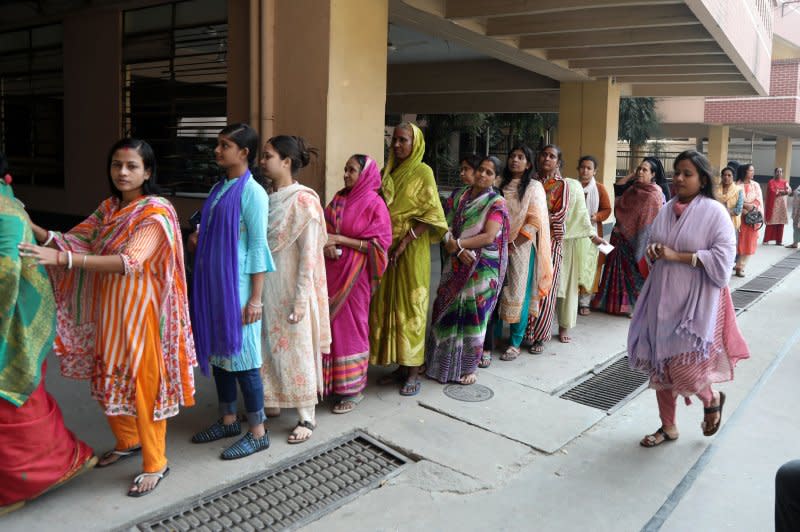Bangladeshi PM Sheikh Hasina wins fourth term in election marred by boycott

Jan. 8 (UPI) -- Voters handed Bangladeshi Prime Minister Sheikh Hasina a fourth consecutive five-year term in an election boycotted by the opposition over a campaign marred by political repression and violence, as the United States condemned elections day irregularities.
"The United States remains concerned by the arrests of thousands of political opposition members and reports of irregularities on elections day," U.S. State Department spokesperson Matthew Miller said in a statement Monday.
"The United States shares the view with other observers that these elections were not free or fair and we regret that not all parties participated."
Provisional results show Hasina's Awami League and its coalition partners won 223 of 300 parliamentary seats, but only about 40% of the 120 million people eligible to vote turned out, Chief Election Commissioner Kazi Habibul Awal said at a press briefing Sunday.
Hasina shrugged off the growing divisions over fears the country is descending into a one-party state, saying that safeguarding democracy was her No. 1 concern.

"Our country is a sovereign and independent country -- maybe we're small but we have a big population," she told reporters in Dhaka.
"We have established people's democratic rights and also the right to a better life. That is our main aim. I want to make sure that democracy should continue in this country. Without democracy, you cannot make any development," said Hasina, who has been in office since 2009 but first became prime minister in 1996.
The opposition Bangladesh Nationalist Party, which alleges its entire leadership and thousands of supporters were jailed in the run-up to the poll, refused to field candidates calling it a phony election.
Six have died in prison with many more tortured, according to the party whose acting chairman lives in London in exile. The former prime minister and BNP leader Khaleda Zia has been either in prison or under house arrest since 2018.
Human Rights Watch, which estimates almost 10,000 BNP supporters were detained after an opposition rally on Oct. 28 at which 16 people were killed and 5,500 were injured, accused Hasina's administration of "filling prisons with the Awami League's political opponents".
"The United States condemns violence that took place during elections and in the months leading up to it," Miller said. "We encourage the government of Bangladesh to credibly investigate reports of violence and to hold perpetrators accountable. We also urge all political parties to reject violence."
In September, the U.S. Department of State imposed visa restrictions on individuals it said were responsible for, or complicit in, undermining the democratic election process in Bangladesh including current and former officials, members of the ruling party, the opposition, judiciary, security services and law enforcement.
"These persons and members of their immediate family may be found ineligible for entry into the United States," Miller added.
"Looking ahead, the United States remains committed to partnering with Bangladesh to advance our shared vision for a free and open Indo-Pacific, to supporting human rights and civil society in Bangladesh, and to deepening our people-to-people and economic ties."
Hasina begins her fifth term facing a raft of problems including an economic crisis forcing Bangladesh to seek a $4.7 billion bailout from the IMF, the second $689 million tranche of which was approved just weeks before the election, amid high inflation and a plunge in the value of its taka currency.


